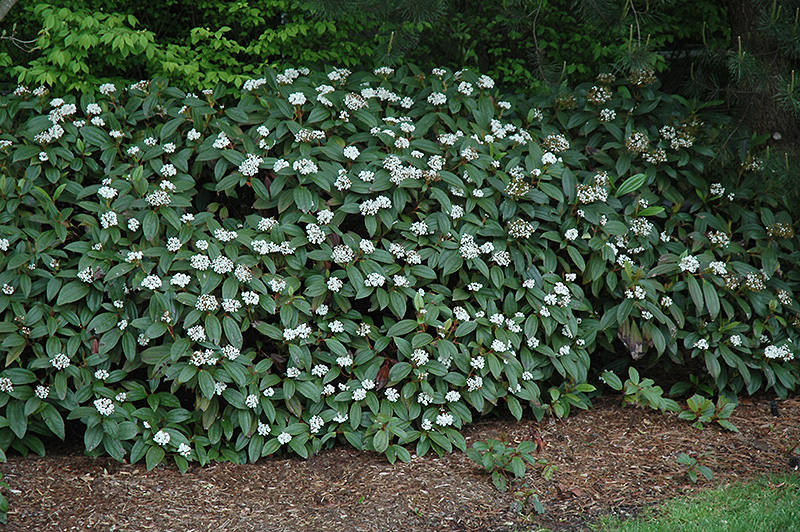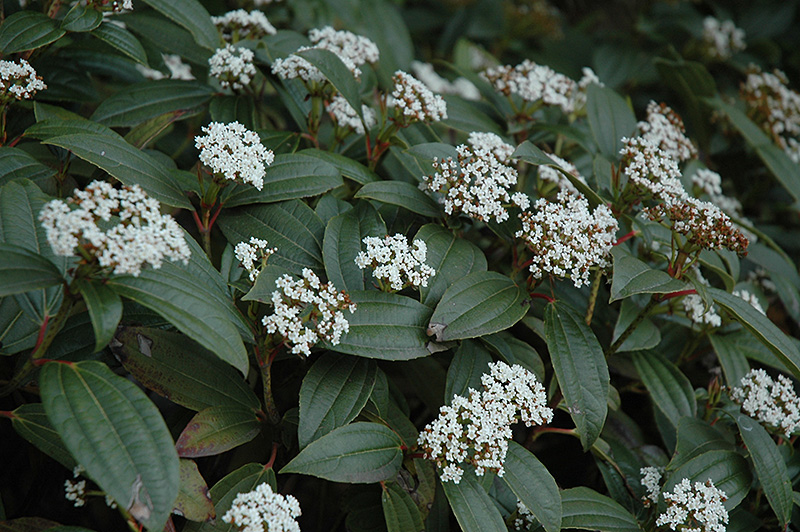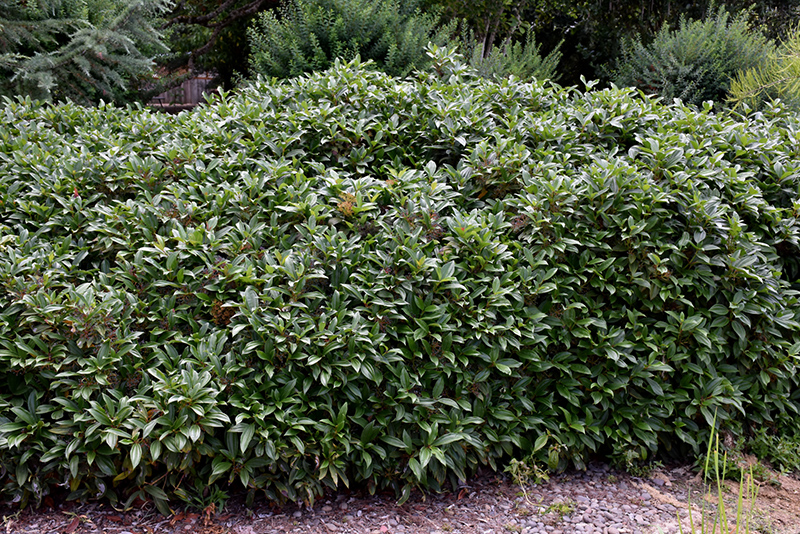Shonnard’s Nursery
Plant Finder Tool
Height: 4 feet
Spread: 4 feet
Sunlight:
![]()
![]()
Hardiness Zone: 6b
Description:
An overwhelmingly popular dwarf shrub with many attributes; showy clusters of creamy white flowers in spring, pinkish-red berries which fade to dark blue in fall; a ubiquitous foundation planting go-to shrub that requires little maintenance, enjoys shade
Ornamental Features
David Viburnum features showy white flat-top flowers at the ends of the branches in mid spring. The royal blue fruits are held in abundance in spectacular clusters in mid summer. It has dark green evergreen foliage which emerges green in spring. The glossy oval leaves remain dark green throughout the winter.
Landscape Attributes
David Viburnum is a multi-stemmed evergreen shrub with a mounded form. Its relatively coarse texture can be used to stand it apart from other landscape plants with finer foliage.
This is a relatively low maintenance shrub, and should only be pruned after flowering to avoid removing any of the current season's flowers. It is a good choice for attracting birds to your yard, but is not particularly attractive to deer who tend to leave it alone in favor of tastier treats. It has no significant negative characteristics.
David Viburnum is recommended for the following landscape applications;
- Mass Planting
- Hedges/Screening
- General Garden Use
- Groundcover
- Naturalizing And Woodland Gardens
Planting & Growing
David Viburnum will grow to be about 4 feet tall at maturity, with a spread of 4 feet. It tends to fill out right to the ground and therefore doesn't necessarily require facer plants in front. It grows at a medium rate, and under ideal conditions can be expected to live for 40 years or more. This is a female variety of the species which requires a male selection of the same species growing nearby in order to set fruit.
This shrub does best in partial shade to shade. It prefers to grow in average to moist conditions, and shouldn't be allowed to dry out. It is not particular as to soil type or pH. It is highly tolerant of urban pollution and will even thrive in inner city environments. This species is not originally from North America.



